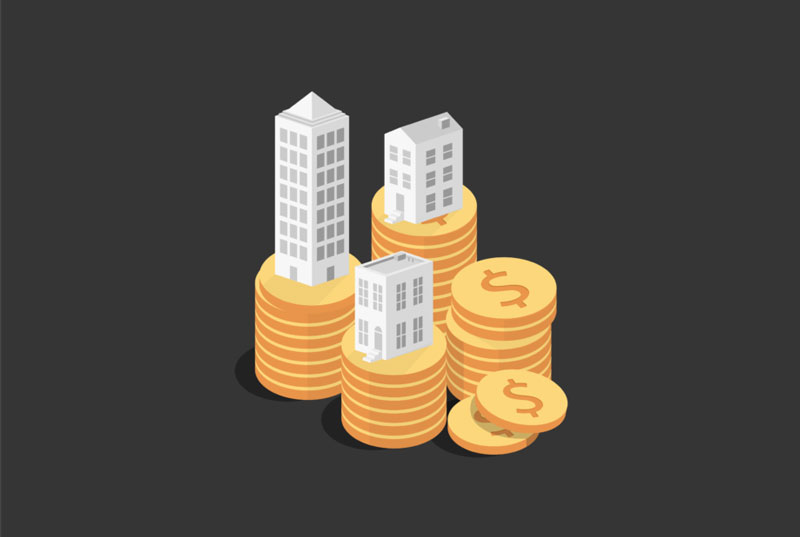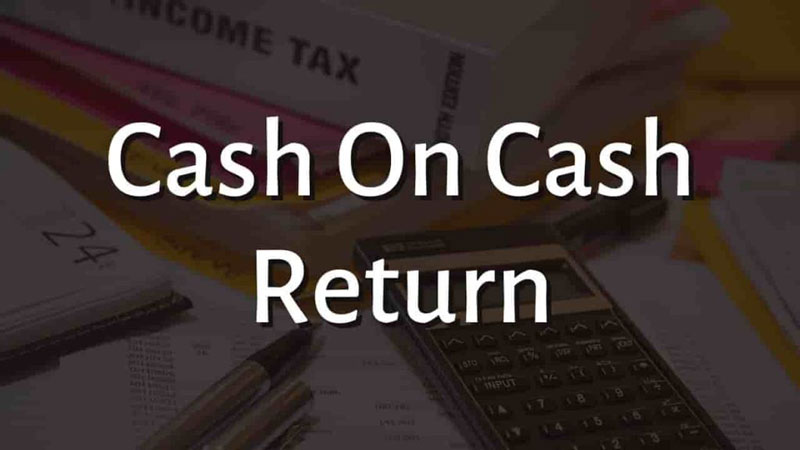Cash-on-Cash Return
Jul 28, 2022 By Triston Martin
Cash-on-cash returns are a type of rate of return that is often employed for real estate deals. It determines the cash earnings from the capital put into the property. Simply put, cash-on-cash return determines the annual return an investor has earned on the property in proportion to the mortgage owed in the exact year. It is considered fairly simple and among the most significant real property ROI calculation methods.
Understanding Cash-on-Cash Return
A cash-on-cash return is a common metric used to evaluate the performance of commercial real estate investments. It can be described as the cash return on the property investment. The cash-on-cash rate can give investors and business owners an understanding of their business plans for a property and potential cash dividends that could be distributed throughout their investment.
The cash-on-cash analysis is typically employed to evaluate investment properties with long-term borrowing. If a debt is a part of an investment in real estate like it is with commercial properties, the cash return on investment is different from the normal ROI.
Calculations based on standard ROI are based on the return on investment in total investment. Cash-on-cash returns, however, do not measure the return earned on actual cash that was invested, which provides an accurate assessment of the performance of an investment.
Example
Cash-on-cash returns are based on the investment property's tax-free cash inflows made from the investor and the tax-free outflows made from the investment. In the example above, let's say an investor in commercial real estate decides to invest in a property that doesn't generate regular income.
The price of the purchase of the property is $1 million. The buyer pays $100,000 in cash as a down payment. Then, he can borrow $900,000 from the bank. The closing costs are due, as are insurance premiums and maintenance expenses of $10,000, which the investor pays out from his pockets.
Within one calendar year, the buyer has made $25,000 in loan repayments, including $5,000 as principal repayment. The investor chooses to sell this property for $1.1 million within one year. The total cash outflow is $135,000, and when the debt of $895,000 is paid back, he leaves with a cash flow of $205,000. The return on cash for the investor will be: ($205,000 - $135,000) / $135,000 = 51.9 percent.

In addition to calculating the present return, the cash-on-cash yield can be used to determine the future cash distributions that are expected to come for investment. In contrast to a monthly coupon distribution, this is not an assurance of a return but rather a goal to determine the potential of an investment. This way, the cash-on-cash return estimates what investors can expect to earn throughout their investment.
What Does It Tell You?
Cash-on-cash yield often called the cash yield of an investment property, is a measure of the commercial real estate investment's performance and is among the most significant real property ROI calculation. This metric gives investors and business owners a simple analysis of the business plan formulated for an investment property, as well as the possibility of cash distributions throughout their investment.
Are ROI And Cash-on-Cash Return Identical?
While they are frequently utilized interchangeably, cash-on-cash returns or the ROI (return of the investment) is not the same when borrowing is utilized in real estate transactions. Most commercial properties have loans, and the real investment's return differs from the normal ROI (ROI). ROI determines the return on all investments, including the debt burden of investment. Cash-on-cash returns, in contrast, are a measure of the actual return on cash invested, which provides a more precise analysis of the performance of an investment.
Calculations
Cash-on-cash returns are calculated based on an investment property's tax-free cash inflows received by the investor and the tax-free outflows made from the investment. It divides the total cash flows by the total amount of cash invested. For instance, an investor buys a house for $1 million, puts $100k cash down as a down payment, and takes out a loan of $900,000. The investor must also pay out-of-pocket $10,000 for the ancillary cost. The investor chooses to sell his property to a buyer for $1.1 million after making $25,000 in loan repayments, comprising a principal repayment of $5,000.
Real Estate Value and Cash-on-Cash Yield
The cash-on-cash yield may be employed in various scenarios; it is typically utilized in the residential real estate industry for valuing commercial properties, especially those that require the borrowing of long-term loans. Cash-on-cash yield may also be utilized to determine whether a property is overvalued. When debt is mentioned in real estate transactions (as typically happens), the actual cash value of the investment may differ from the typical returns on investments (ROI).





